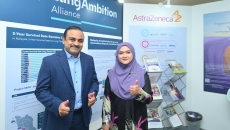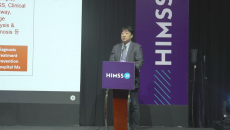Artificial Intelligence
It has partnered with Institut Kanser Negara to promote the adoption of AI-based lung screening in public health.
Intermountain, Northern Light Health and University of Missouri Health Care are the most recent organizations recognized for their use of IT to improve care delivery.
It flags cases in real time, prompting faster patient interventions.
SPONSORED
The med-tech industry is evolving from solely supplying advanced hardware to providing comprehensive patient care solutions. This shift influences how med-tech companies tackle product development, collaboration, and data utilisation.
HIMSS23 APAC
Cooperation is key to the successful implementation of new technologies such as AI for improving care, said Prof Ho Young Lee of Seoul National University Bundang Hospital.
SPONSORED
HIMSS23 APAC
Dive into the transformative power of AI in modern medicine. Explore the shift from traditional methods to advanced systems and the enduring relevance of existing health record systems. Discover how GenAI is shaping the future of healthcare and research.
SPONSORED
HIMSS23 APAC
Interest in the pre-conference FHIR workshop exceeded our expectations, and we also saw significant developments in digital twins, emerging technologies, and generative AI.
Algorithms and large language models are already transforming healthcare processes across many use cases. Here's how some pioneering health IT leaders are using AI today, and how they're planning for the future.
It will leverage OpenAI's large language models to help the direct primary care physicians using Hint's platform have more time with patients and spend less time taking notes, the companies say.
Todd Gottula, president and cofounder of Clarify Health, says that clear case-adjusted benchmarks and patient outcome data can make conversations about AI-driven incentives much more approachable.










